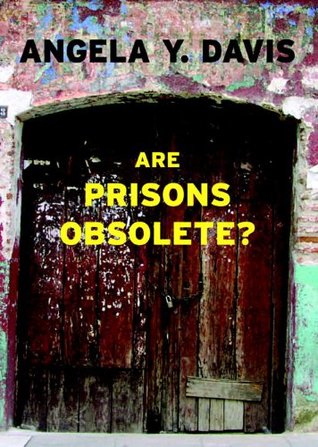More on this book
Community
Kindle Notes & Highlights
At bottom, there is one fundamental question: Why do we take prison for granted?
On the whole, people tend to take prisons for granted. It is difficult to imagine life without them. At the same time, there is reluctance to face the realities hidden within them, a fear of thinking about what happens inside them. Thus, the prison is present in our lives and, at the same time, it is absent from our lives.
However, incarceration itself eventually became the penalty, bringing about a distinction between imprisonment as punishment and pretrial detention or detention until the infliction of punishment. The process through which imprisonment developed into the primary mode of state-inflicted punishment was very much related to the rise of capitalism and to the appearance of a new set of ideological conditions. These new conditions reflected the rise of the bourgeoisie as the social class whose interests and aspirations furthered new scientific, philosophical, cultural, and popular ideas. It is thus
...more
The transformation of imprisoned bodies—and they are in their majority bodies of color—into sources of profit who consume and also often produce all kinds of commodities, devours public funds, which might otherwise be available for social programs such as education, housing, childcare, recreation, and drug programs.
In the ten years between 1990 and 2000, 351 new places of confinement were opened by states and more than 528,000 beds were added, amounting to 1,320 state facilities, representing an eighty-one percent increase. Moreover, there are currently 84 federal facilities and 264 private facilities.
South Africa’s participation in the prison industrial complex constitutes a major impediment to the creation of a democratic society. In the United States, we have already felt the insidious and socially damaging effects of prison expansion. The dominant social expectation is that young black, Latino, Native American, and Southeast Asian men—and increasingly women as well—will move naturally from the free world into prison, where, it is assumed, they belong. Despite the important gains of antiracist social movements over the last half century, racism hides from view within institutional
...more
An abolitionist approach that seeks to answer questions such as these would require us to imagine a constellation of alternative strategies and institutions, with the ultimate aim of removing the prison from the social and ideological landscapes of our society. In other words, we would not be looking for prisonlike substitutes for the prison, such as house arrest safeguarded by electronic surveillance bracelets. Rather, positing decarceration as our overarching strategy, we would try to envision a continuum of alternatives to imprisonment—demilitarization of schools, revitalization of
...more
To reiterate, rather than try to imagine one single alternative to the existing system of incarceration, we might envision an array of alternatives that will require radical transformations of many aspects of our society. Alternatives that fail to address racism, male dominance, homophobia, class bias, and other structures of domination will not, in the final analysis, lead to decarceration and will not advance the goal of abolition.
The alternatives toward which I have gestured thus far—and this is only a small selection of examples, which can also include job and living wage programs, alternatives to the disestablished welfare program, community-based recreation, and many more—are associated both directly and indirectly with the existing system of criminal justice. But, however mediated their relation might be to the current system of jails and prisons, these alternatives are attempting to reverse the impact of the prison industrial complex on our world.
Thus, if we are willing to take seriously the consequences of a racist and class-biased justice system, we will reach the conclusion that enormous numbers of people are in prison simply because they are, for example, black, Chicano, Vietnamese, Native American or poor, regardless of their ethnic background. They are sent to prison, not so much because of the crimes they may have indeed committed, but largely because their communities have been criminalized. Thus, programs for decriminalization will not only have to address specific activities that have been criminalized—such as drug use and
...more
A few days after the September 11 attacks, the Biehls had been asked to speak at a synagogue in their community. According to Peter Biehl, “We tried to explain that sometimes it pays to shut up and listen to what other people have to say, to ask: ‘Why do these terrible things happen? ’ instead of simply reacting.”


